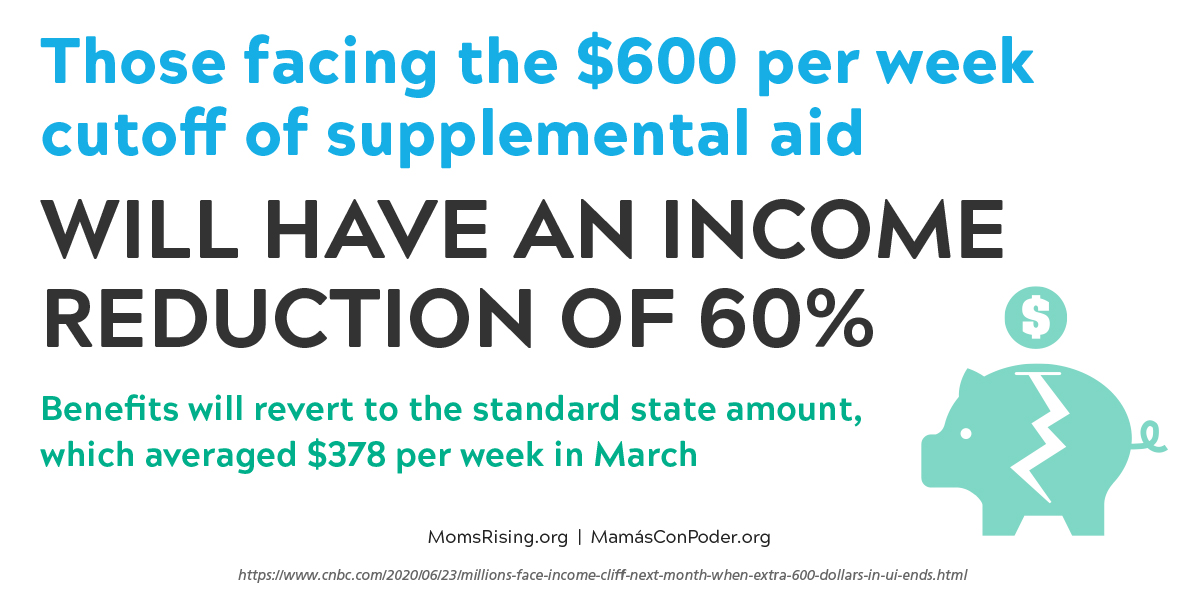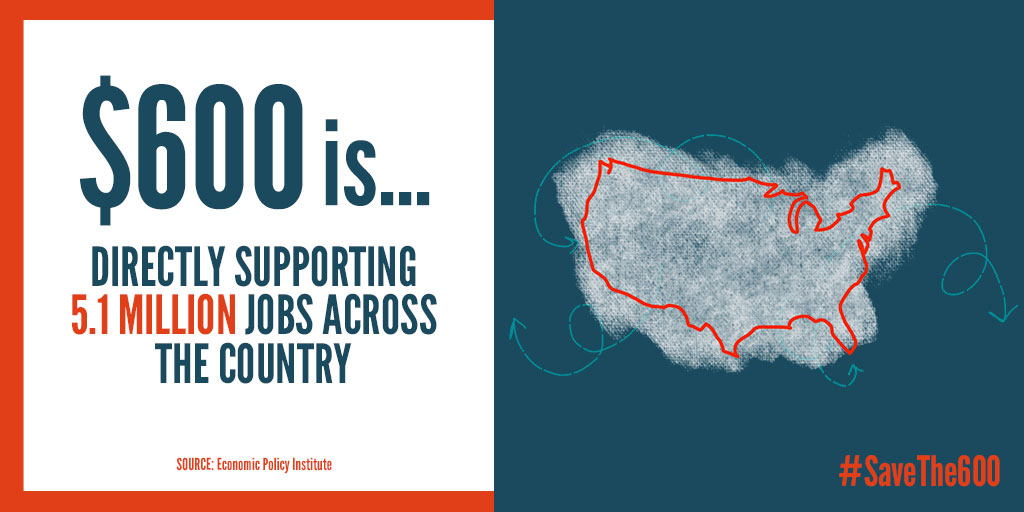
With $600 UI benefits lapsed, MomsRising members, Senators call for extension
Sharmah Wardlaw of Atlanta, Georgia worked as a concierge at a local convention center, a job she had held for 15 years, when the coronavirus pandemic set in. Suddenly, no conventions, no visitors – and for Wardlaw, no work.
She relied in part on the additional $600 in federal unemployment benefits – payments that ended last month. The convention center has re-opened, but business is slow, and Wardlaw has been notified that she probably will remain on layoff status during the months of August and September. “It’s hard not to panic, because that means we’re going to have to continue relying on unemployment – and without the $600 a week boost, we won’t even be able to keep up with the rent,” she said. “We are praying that Congress extends it. Otherwise we don’t know what we’re going to do.”
Wardlaw was among a group of MomsRising members who joined three U.S. Senators last week on a telephone news conference urging the Senate to continue the $600 payments. Republican senators have balked at doing so, preferring instead to push a miniscule $200 additional benefit.

Molly Lynch of Nevada still has not seen a penny of unemployment insurance – but her partner began receiving his $600 weekly check in June, money she said “has been a huge relief – a lifeline for my small, growing family.”
Lynch has a four-year-old daughter and is expecting a baby son in November. “The unemployment boost allowed us to meet our basic needs and even catch up on a few bills,” she said. “As we think about that last $600 check, we’re faced with impossible decisions. Should we try to catch up on our electric bill, which we’re $900 behind on? Should we stock up on food? What about diapers? It’s so hard planning for a baby who will be here in just three months while we try to hang on financially and protect our health. Moms like me are under a lot of stress right now. It feels like some in Congress don’t really understand what we’re going through.”
Lynch added that her landlord “harasses us almost every single day. He says he’ll evict us as soon as he’s allowed to.”
Hannah Silver of Oregon has a consulting business, working with architects. Interest in her services began waning in March, and her side job as a yoga instructor vanished altogether.
“What $600 a week means for me as an independent contractor out of business is roughly that I have my own health insurance, rent, and groceries covered,” Silver said. “That is it. Baseline healthcare, shelter and food for one person – absolute basics of living. I am not going on vacations, pocketing (it) into savings, or online shopping….This $600 a week is a lifeline for those of us whose dreams to run a small business or be our own bosses are taking hard pivots right now in order to survive.”
Katie Krupp of Ohio has taught in public schools for 17 years; her job for next semester has already been eliminated due to Ohio’s ongoing severe COVID-19-related budget cuts. Her situation is complicated by an autoimmune deficiency, which limits the number of alternative jobs she could pursue, such as in restaurants or stores.
“The UI benefits have allowed me to stay current with my bills and stay financially stable,” she said. “Without them, I would not be able to keep my home and important possessions. This proposal will hurt real people who are struggling, and I’m sharing my story to draw attention to this issue and the urgent need to extend this critical assistance.”

Also participating in the telephone news conference were Sen. Ron Wyden (D-OR), who moderated the event; Sen. Sherrod Brown (D-OH) and Sen. Catherine Cortez Masto (D-NV).
“As a result of Donald Trump and Mitch McConnell’s dithering, 30 million Americans are going to see their incomes cut by more than half overnight,” Wyden said. “This will devastate families and our economy. Families are going to be unable to pay rent or buy groceries. As a result, $15 billion per week will be taken out of the economy, and five million jobs will be lost.”
“This assistance is one of the only things keeping people in their homes,” said Brown, adding that 680,000 Ohioans are out of work right now, and the elimination of the $600 benefit means $275 million is being subtracted from Ohio’s economy every week. “It’s an insult to the people who make this country work.”
Cortez Masto called upon Senate Republicans to immediately negotiate a fair deal. “Thousands of Nevadans who honored their commitment to the health and safety of their communities by staying home to stop the spread have relied on the extra $600 in monthly benefits to pay their rent and put food on the table,” she said. “Yet now, Mitch McConnell and the Senate Republicans have turned their backs on those struggling families by failing to act before the expiration of this assistance.”

